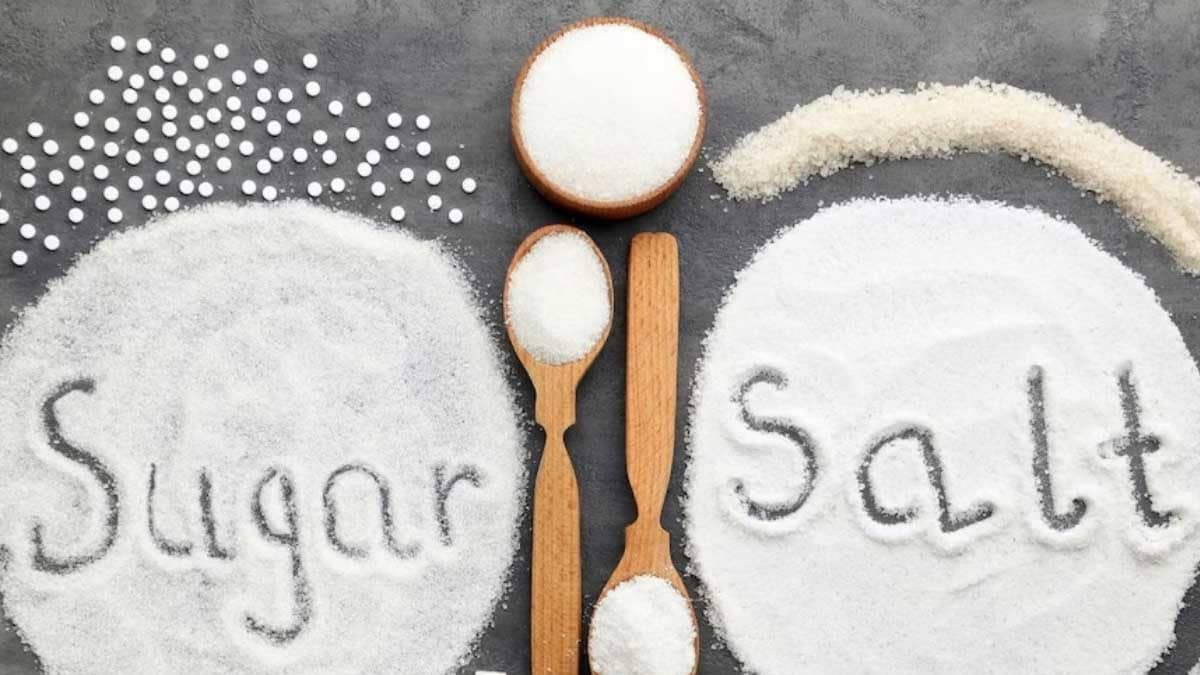Circadian Diet: 5 Foods to Eat And Avoid To Optimise Your Health

Consuming too much salt and sugar can cause heart attack or stroke.
These foods can help regulate your circadian rhythm, boost your energy levels, and promote better sleep quality, leading to an overall improvement in your health and well-being.
The circadian diet is a type of meal plan that follows the body’s natural circadian rhythm, the 24-hour internal clock that regulates various physiological processes. It emphasises eating at specific times of the day to optimise metabolism, energy levels, and sleep quality.
If you want to implement this diet, there are certain foods that you must eat, and others that are best avoided. These foods can help regulate your circadian rhythm, boost your energy levels, and promote better sleep quality, leading to an overall improvement in your health and well-being. Here are five foods to eat as well as five food items to avoid while on a circadian diet.
Foods to eat
- Leafy green vegetables
Leafy greens such as spinach, kale, and broccoli are rich in vitamins, minerals, and antioxidants. They also contain high amounts of fibre, which can help regulate blood sugar levels and promote healthy digestion. Including leafy greens in your diet can help regulate your circadian rhythm and promote better sleep. - Whole grains
Brown rice, quinoa, and oatmeal are rich in fibre and complex carbohydrates that can help regulate blood sugar levels. They can make you feel fuller for a longer time period. Whole grains also contain high amounts of vitamins and minerals that are essential for our overall health. - Lean proteins
Proteins such as chicken, fish, and tofu are rich in essential amino acids that are necessary for building and repairing muscles. These food products also contain high amounts of vitamins and minerals. - Nuts and seeds
Nuts and seeds such as almonds, walnuts, and chia seeds are rich in healthy fats, fibre, and protein that can help regulate blood sugar levels. Including nuts and seeds in your diet can help regulate your circadian rhythm. - Fermented foods
Fermented foods such as yogurt, kefir, and sauerkraut are rich in probiotics that can help improve gut health and promote healthy digestion, leading to better sleep patterns.
Foods to avoid
- Processed foods
Processed foods such as chips, cookies, and soda are high in sugar, unhealthy fats, and preservatives that can disrupt your circadian rhythm and promote inflammation. They can also lead to weight gain and increase the risk of various health issues. - Caffeine
Caffeine can disrupt your circadian rhythm, making it difficult to fall asleep. It is best to avoid caffeine in the evening and limit its consumption to early in the day. - Alcohol
While alcohol may help you fall asleep initially, it can disrupt the quality of your sleep and may lead you to wake up in the middle of the night. Limit alcohol consumption. Avoid drinking close to your bedtime. - High-fat foods
High-fat foods such as fried foods can promote inflammation. Avoid consuming these foods and opt for lean proteins and healthy fats instead. - Sugary foods
Sugary foods such as candy and pastries are high in sugar and can alter our sleeping patterns, if consumed too close to bedtime. You can opt for whole foods instead.
Read all the Latest Lifestyle News here
For all the latest lifestyle News Click Here


